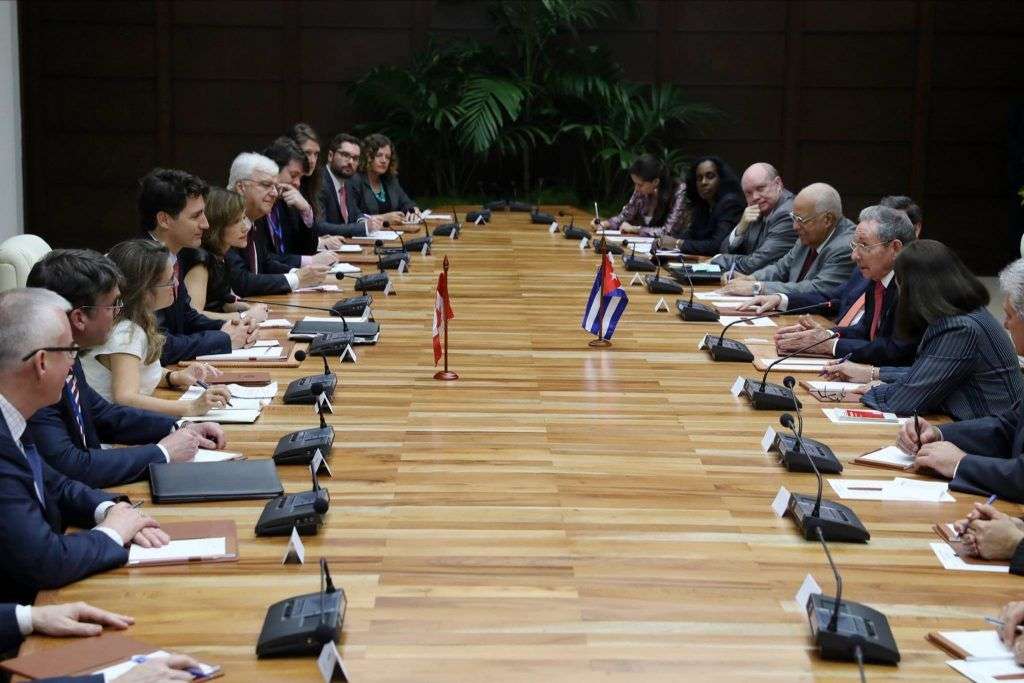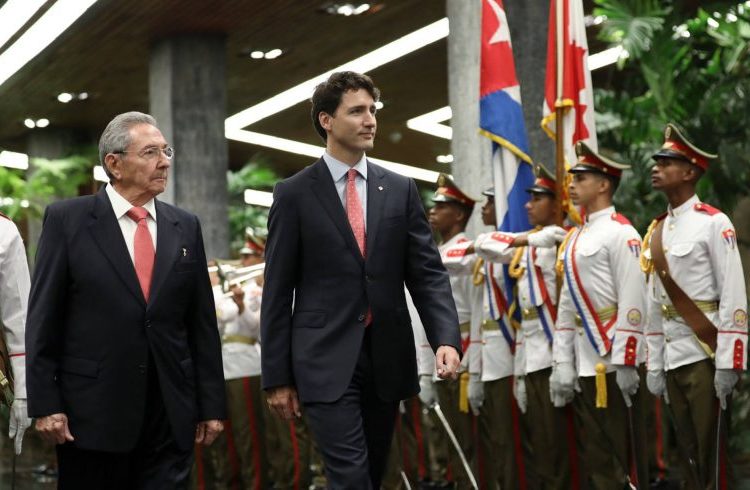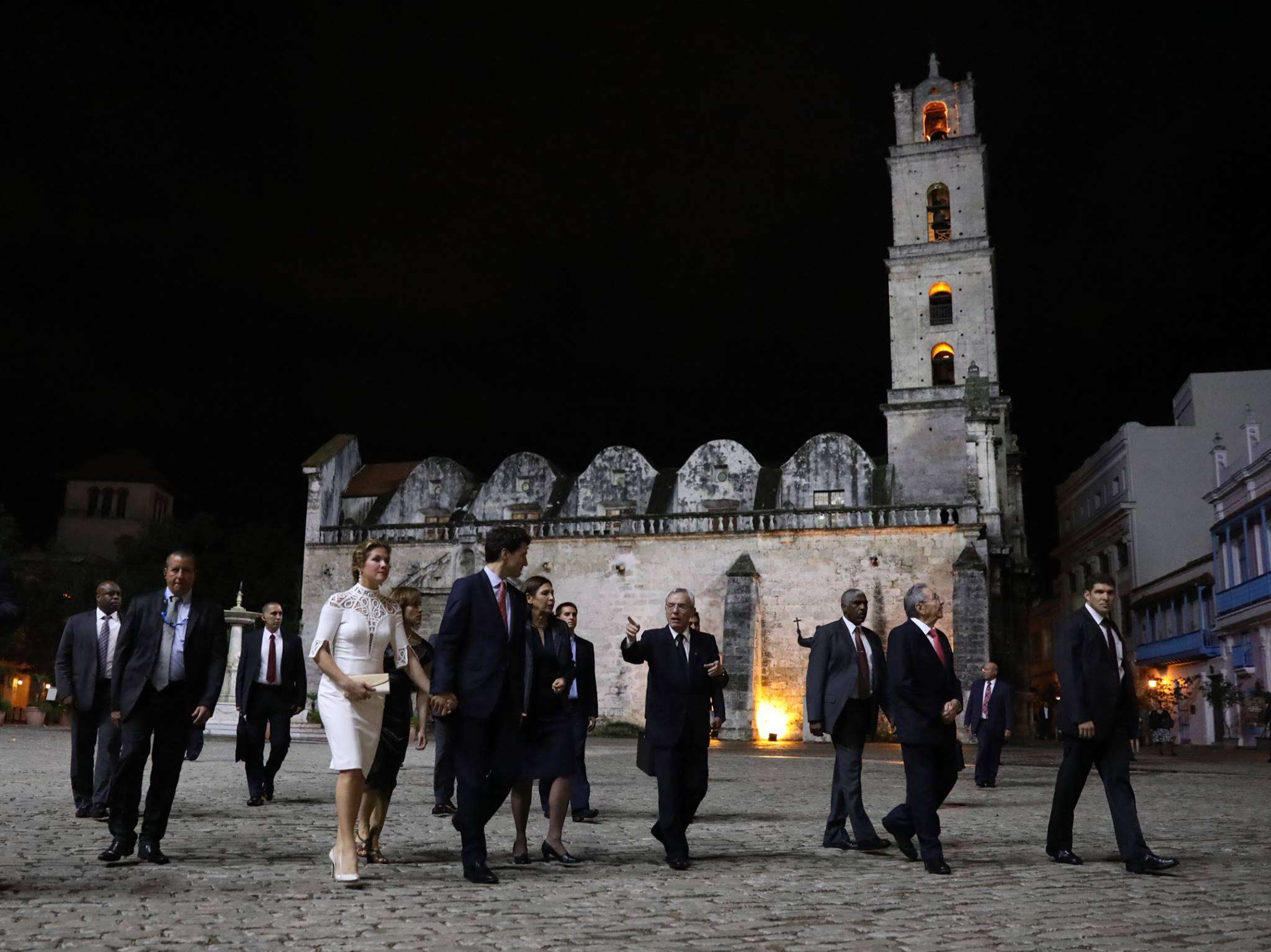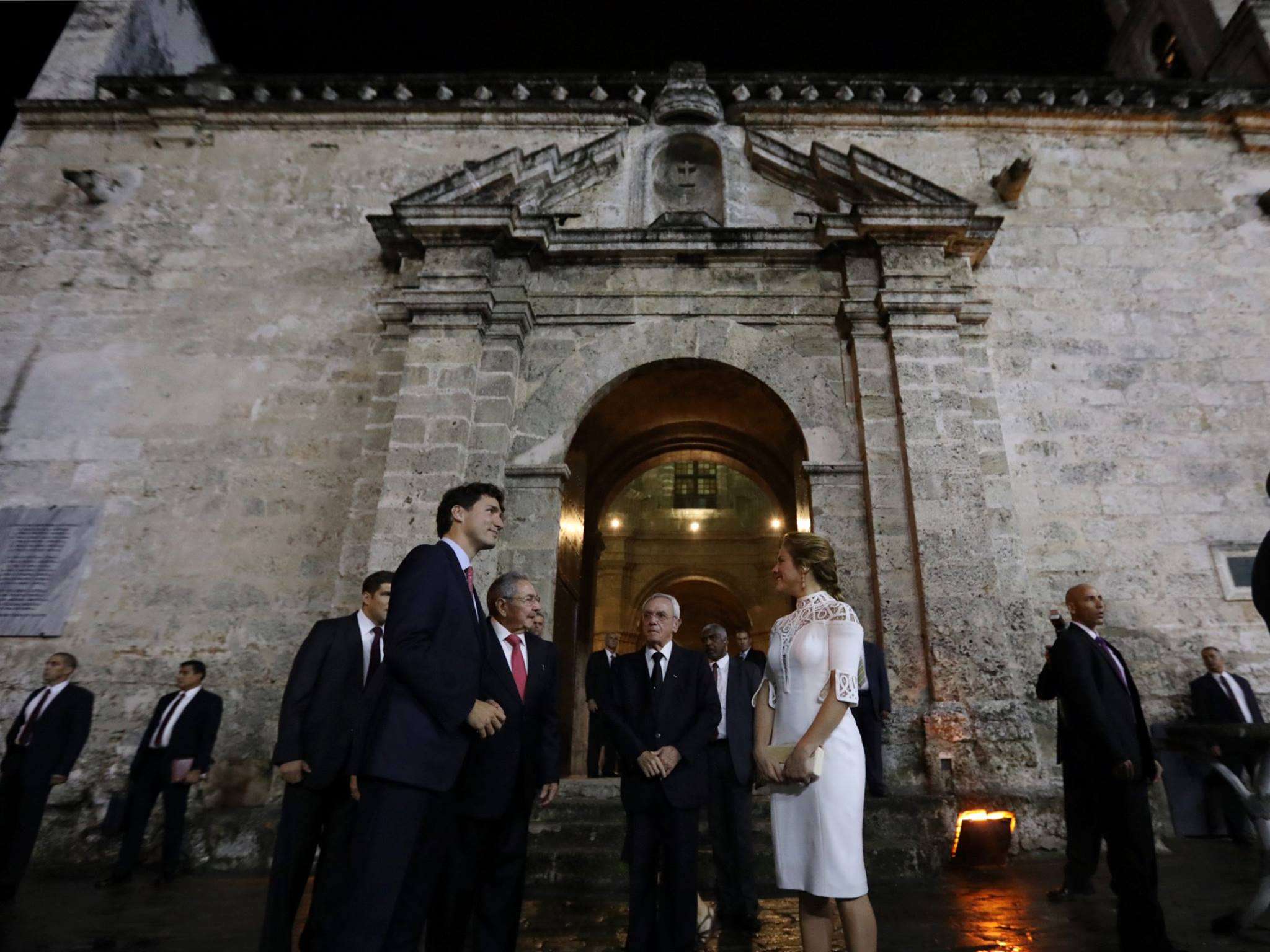Justin Trudeau has been clear: “The U.S. elections are not going to change Canada’s relations with Cuba. We will continue working to strengthen our bilateral ties and also to contribute to Cuba’s relations with the rest of the world.”
In a lecture given this Wednesday in the Aula Magna of the University of Havana, the young Canadian prime minister reaffirmed his country’s commitment to the island, not just in terms of economic investment and tourism but also in assistance and collaboration.
“We do not agree with the U.S. focus on Cuba,” he affirmed before the principal Cuban authorities, President Raúl Castro among them, and a group of university students, “but it’s not our job to tell our partners what they have to do, but rather create opportunities for Canadian companies and citizens, and also for Cuba. This is the focus we are going to maintain.”
These affirmations by Trudeau confirm the significance of this visit. Although brief, the Canadian prime minister’s trip seems destined to consolidate the ties between his country and Cuba, at a moment marked by uncertainty after Donald Trump’s triumph in the U.S. elections.
The visit’s symbolic character is also reinforced by his arrival 40 years after his father, the also Canadian Prime Minister Pierre Elliott Trudeau, who was the first western leader to the visit the island after the triumph of the Cuban Revolution.
“It was very important for me that Cuba be the first place in Latin America that I visit,” Trudeau commented in the Aula Magna.
After his arrival this Tuesday, the agenda of Trudeau, who is also Minister of Intergovernmental Affairs and Youth of his country, has followed the usual channels for a visit of this nature. After his reception in the evening by Cuban Vice President Miguel Díaz-Canel, he placed a floral wreath to José Martí, Cuba’s National Hero, in the Havana square that bears his name and visited the memorial located there in his honor.
Afterwards he met with President Raúl Castro, undoubtedly the key moment of his trip. According to what the Cuban press published, in the meeting “both heads of state reviewed the satisfactory state of bilateral relations and reiterated the will of their respective governments to strengthen political, economic-commercial, financial, investment, cooperation and tourism ties between the two nations.”
This information has now been tinged by Trudeau’s statements in the University of Havana, which specify his country’s position and that they are on the same wavelength of what analysts said before his arrival. Just a few days ago Professor Carlos Alzugaray recalled in OnCuba the importance that these two countries give to their economic relations, beyond political and diplomatic considerations.
He recalled then Canada’s sustained record in Cuban tourism, with more than 1.3 million vacationers last year, a figure that represents 51.5 percent of all visits to the island by foreigners. He also pointed out Canada’s position as one of Cuba’s best trade partners, in terms of exports and imports, as well as investments and cooperation.
This is a panorama that must now tend to reinforcement at a time when the Caribbean nation is seeking to increase foreign investments and when Trump’s electoral victory could slow down the rapprochement between Cuba and the U.S.

Although Canada is aligned with the United States in many aspects of its international policy, it has known how to conserve respectful and growing relations with Cuba. Diplomatic ties have been maintained for more than 70 years and Canada’s economic power has allowed it to distance itself, and even gain ground in the opposite sense, from the restrictive policies towards Cuba of its U.S. neighbor.
This position of independence by Ottawa with respect to Washington was consequently practiced by Pierre Elliott Trudeau, to the point of being esteemed by then President Fidel Castro, who attended the funeral of the former prime minister in 2000. His father’s heir in the leadership of the Liberal Party and Canadian prime minister for barely a year, Justin Trudeau seems to have the will to continue the political legacy of his father and strengthen more the affinities with the island and its government.
One would have to see if the advances in relations will have a visible qualitative leap or if, despite what has been said now, their moderate but sure systematic growth will continue. In any case, Canada is willing to ensure its strategic position for the Cuban economy and as a political counterweight in the eventful landscape of the hemisphere and particularly concerning the ups and downs between Cuba and the United States.
After his trip to the island, Justin Trudeau will arrive on Thursday to Peru, where he will carry out an official visit and will participate in the Asia Pacific Economic Cooperation (APEC) Leaders Summit.
Trudeau quotes translated from the Spanish.












